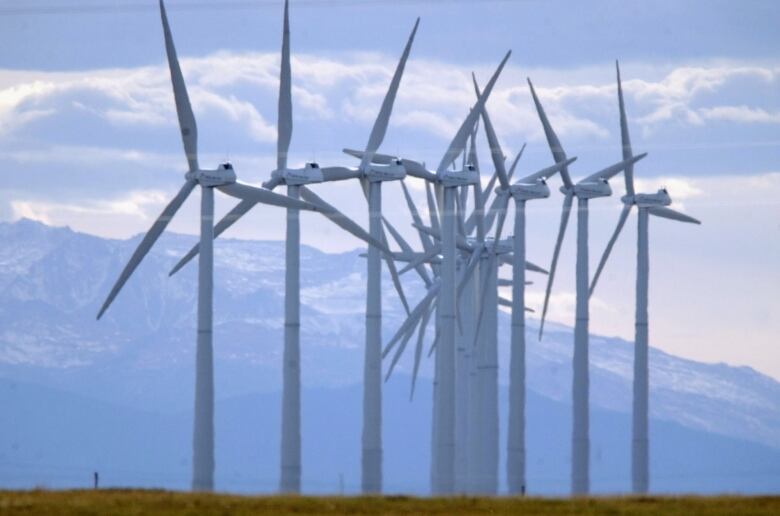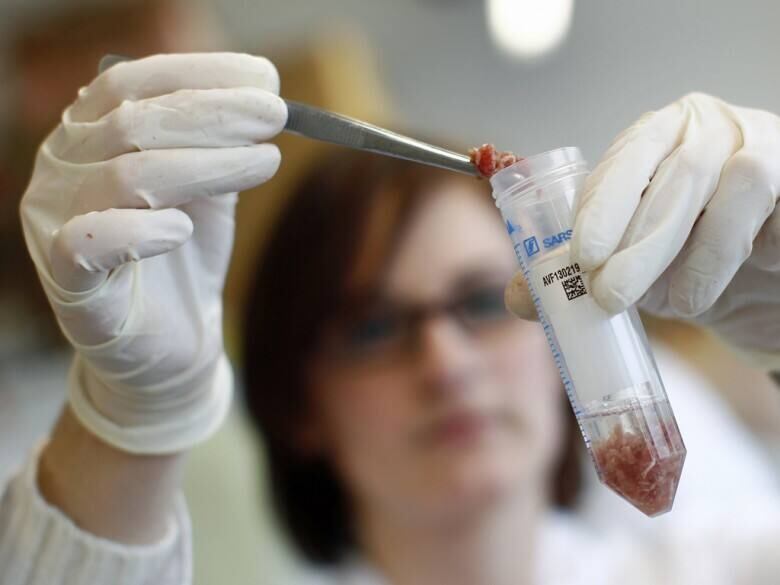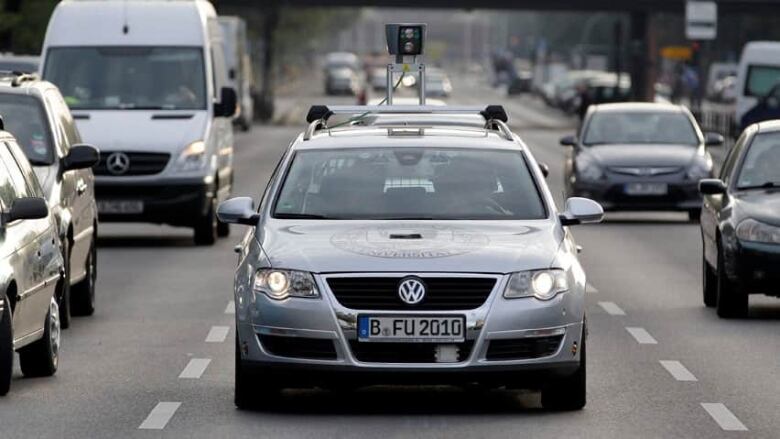4 ways technology can help mitigate climate change
'Climate change and clean technology are inherently linked'

While technology,alone, isn't going to solve climate change, experts say there are ways technology can dramatically help reduce itsimpact.
Jessie Adcock, the chief technology officer at the City of Vancouver, says a lot of the solutions to climate change are grounded in advances in technology.
"Technology is becoming a lot more pervasive in everything that we do," she explained.
"I think climate change and clean technology are inherently linked. A lot of the solutions don't exist yet. We're still trying to figure them out, but I do think that we have a lot of the building blocks in place."
1) Alternativeenergy sources

Sybil Seitzinger, the executive directorof the Pacific Institute for Climate Solutions at the University of Victoria, says alternative energy sources arekey to reducingB.C.'s dependency on fossil fuels and in turn, reduce our greenhouse gas emissions.
"Our heating will probably be coming from wind, solar, maybe even nuclear," she said.
Not only would technology help develop these energy sources, the City of Vancouver's Adcock says data sharing between communities could help harness this energy efficiently and sustainably.
"Basically, neighbourhoods can create their own private solar grids and share energy amongst themselves," she said.
"Everybody on the street can essentially connect their homes into this app, and it monitors how much energy you create. If I have a lot and you're not generating a lot we can swap."
2) Lab-grown meat

One of the biggest generators of greenhouse gas emissionsis livestock farming, Seitzinger explained, and livestock farming also takes up valuableland and water resources which may not be available in the future.
"In many areas such as the Interior of B.C. where we have cattle now, there'll be more droughts and drier conditions," shesaid.
She said meat developed in the laboratory cloned from individual cells has significant advantages.
- A burger by any other name: What do we call lab-grown meat?
- Meet 'Schmeat': Lab-grown meat hits the grill this month
- After first lab-grown burger, test-tube chicken is next on menu
First, lab meatdoesn't use large areas of land, nor large amounts of waterandwithout living, breathing animals, it reducesgreenhouse gas emissions.
"A few years ago, it sounded like we were a long way off but now there's companies in the U.S. and the Netherlands that are making quite good progress, and some of them say within fiveyearsthey think they'll be able to go to market," she said.
3) The automation revolution

An automation revolution is coming be it driverless "quiet" highways, industrial robots or automatedassembly line systems.
The main ecological promise of automation is the ability to more efficiently useresources which can reduce waste, save energy costsand improve efficiency.
However, automated technology will also change how human beings organize themselves, Seitzinger said, and possibly change the way we work together.
"We've had changes in the workforce already, and so, Isee this as a continuum, and it's a continuum that we need to be ready for, and we need to prepare for," shesaid.
"There will be shifts in the way we educate and how we educate and what we train people for."
4) The ubiquityof data

In the future, data will be even more ubiquitous and readily availablethan ever before, according to Adcock.
"What we'll have is potentially temperature sensors or pollen sensors or water sensors and all sorts of detection aids that can help us make decisions that are a lot more fact based but also a lot more in real time so that we can course correct and adjust," she explained.
"I think that a lot of us will use that data to make positive decisions, ultimately, that can help us."












_(720p).jpg)


 OFFICIAL HD MUSIC VIDEO.jpg)
.jpg)



























































































